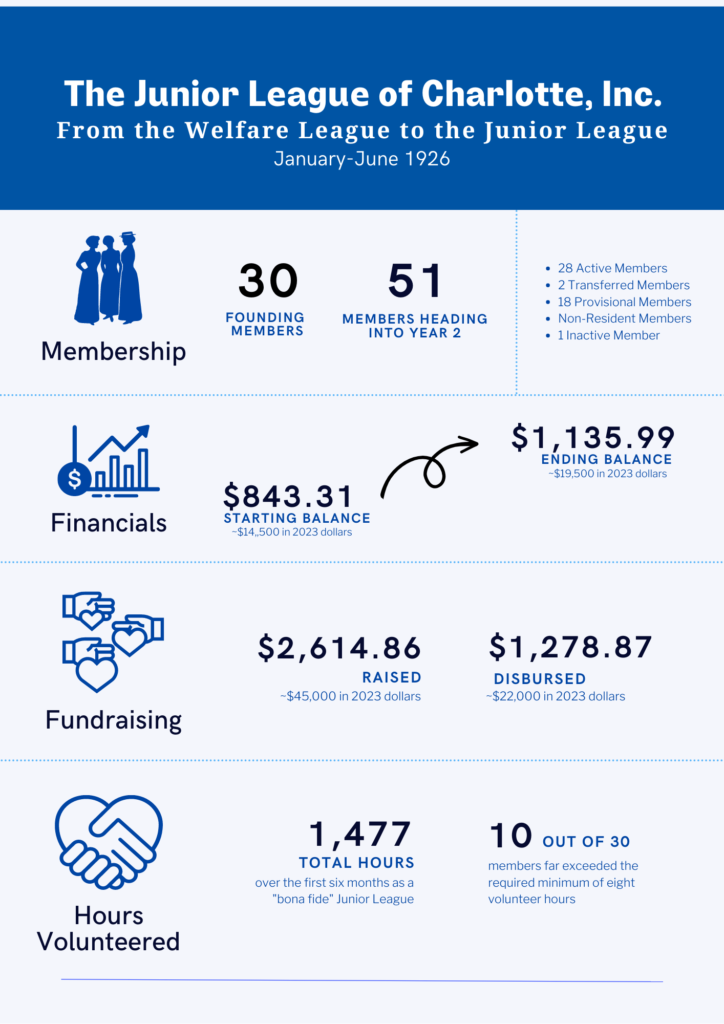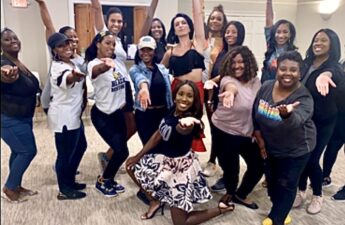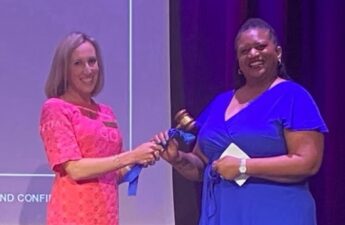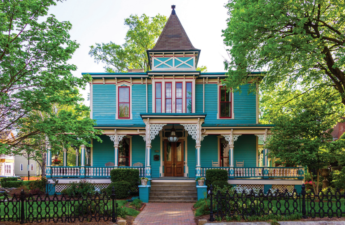The 2023-2024 League year marks 98 years of the Junior League of Charlotte, Inc. (JLC) developing women leaders for community impact. As our centennial approaches, we are delighted to introduce the new “Road to 100” blog series.

Over the next three years, this monthly series will cover 100 years of JLC history and our League’s community impact. This first annual series will focus on our earliest era: 1926-1958.
How It All Began: The Annual Report of the JLC’s Inaugural Year (January-June 1926)
It was the roaring twenties, the Jazz Age was in full swing, and our League’s Road to 100 officially began on January 1, 1926. Initially born in October 1924 as the Welfare League, which had 15 charter members at its initial meeting, it was characterized by the Charlotte Observer as “the most prominent and society girls of Charlotte, organized for the benefit of the city’s poor and needy.”
Members of the Welfare League dedicated time and resources to the Salvation Army, the Associated Charities and newborn infants of Charlotte hospitals, among other charitable endeavors. By 1926, the organization had doubled in size, growing to a group of 30 women who became the founding members of the JLC – with support for induction into the then Association of Junior Leagues of America (AJLA) from sister Junior League chapters in Nashville, TN; Atlanta, GA; Winston-Salem, NC; and Jacksonville, FL.
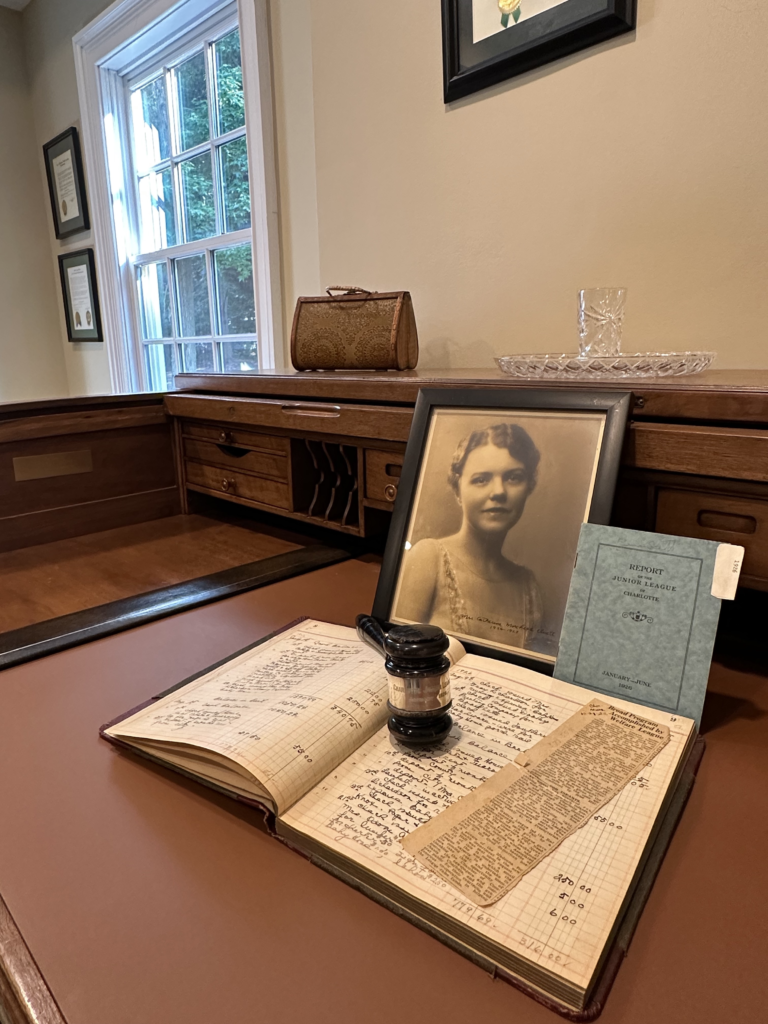
Once formally established, members of the JLC wasted no time in preparing to make a positive impact within the broader Charlotte community. The first JLC president, Catherine Garrett Morehead, wrote of the League’s inception in the first-ever Report of the President:
“We felt very grateful, very humble and very willing to work and wait to find a real place to fill and call our own in the community. We had helped at the hospitals, Red Cross, helped needy families; helped with Christmas funds and Christmas dinners and we expected to continue doing this until our wings became a little stronger. These ideas were entirely upset when at the Cooperative Social Agencies meeting at the City Hall in January the Alexander House asked if some one [sic]would not undertake the establishment of a Baby Home in Charlotte to take destitute babies from birth until the time they could enter the Thompson Orphanage here in the city… This was the work the Junior League wanted but we also realized it was a great responsibility.”
With the support of the local community, the Junior League Baby Home, Inc. opened in a donated five-room cottage on April 14, 1926. It employed “two practical nurses in charge” and took in five babies within its first week. The formal opening to the public was held on May 18, 1926, “with many visitors and donations,” and the League formally received its charter and license from the State of North Carolina.
Several committees were dedicated to ensuring the smooth operation of and funding for the Baby Home. In her report for the Entertaining Committee, Chairman Julia Scott Cramer (daughter-in-law of industrialist Stuart W. Cramer and founder of the town of Cramerton) wrote:
“The Junior League gave a very successful dance at the Charlotte Country Club on May the tenth, the night of the races, for the benefit of the Baby Home. The various committees functioned perfectly.
Bouquets of flowers and homemade candies were sold throughout the evening… During intermission, several clown vaudeville stunts added to the gayety [sic]of the occasion, including a skit by Widermeyer’s Orchestra.”
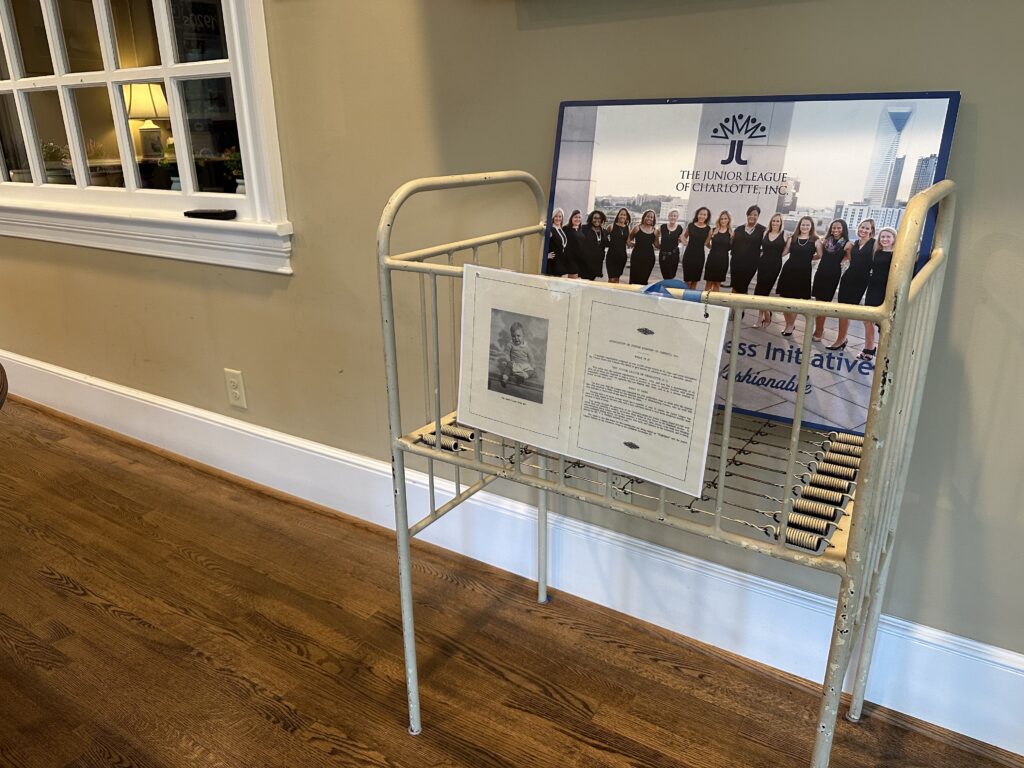
By June of 1926, the League closed its inaugural year with 51 members. They had held 16 meetings – many in members’ private homes, with Myers Park Methodist Church eventually allowing the League to use one of its rooms for meetings. In her Report of the President, Catherine Morehead names several other community members who helped contribute to the success of the growing League, including Mr. Edgar Pharr (former speaker of the N.C. House of Representatives, who provided a “most beneficial and interesting lecture on Parliamentary Law”) and Mr. D. H. McCollough (a CPA who provided accounting and audit support for the League’s finances).
JLC’s Inaugural Year by the Numbers
